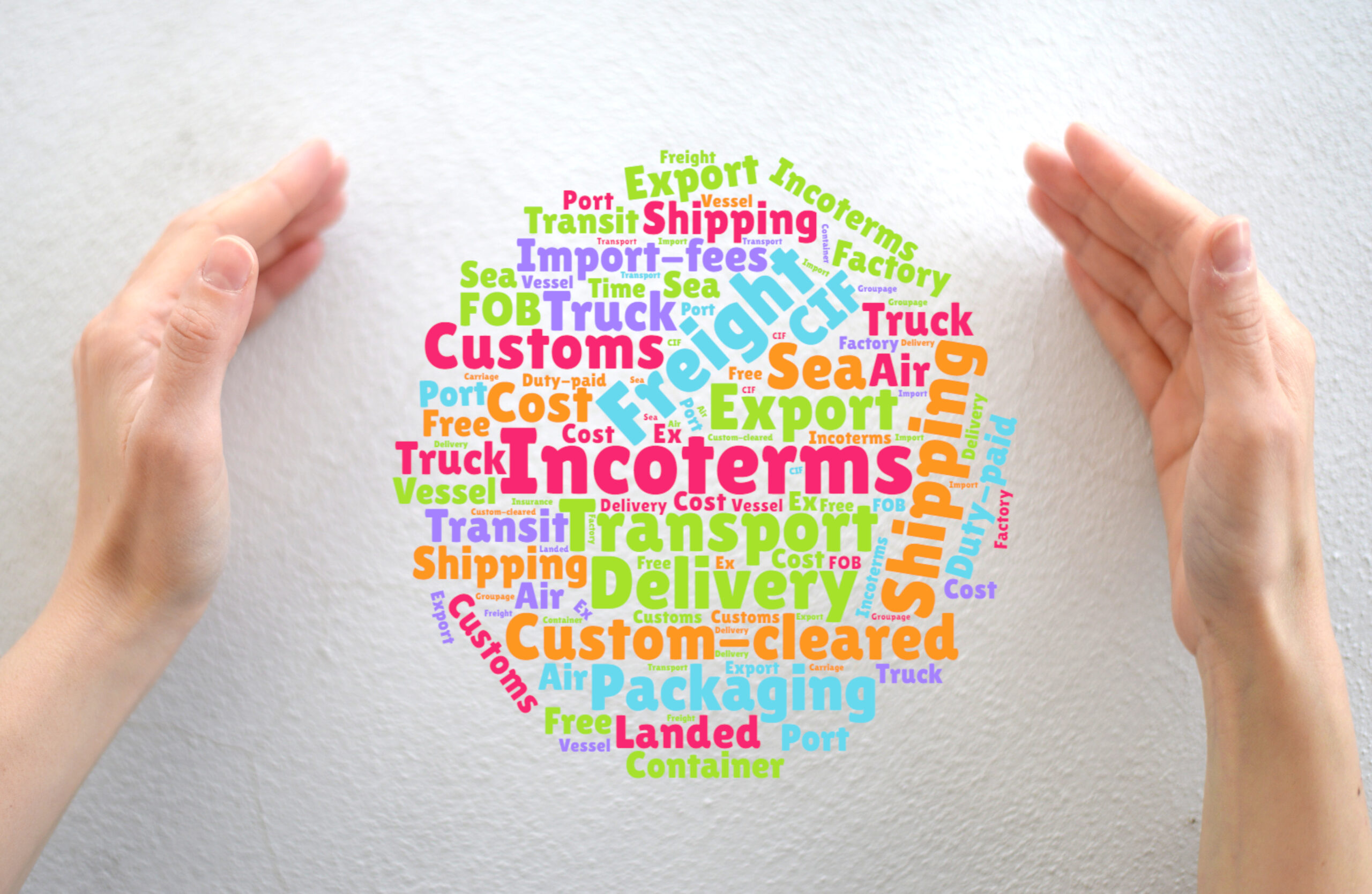Welcome to your complete guide to Incoterms. Within this guide we will look at the 11 rules that apply to Incoterms, along with their definitions.
Incoterms set out who is responsible for each element of a journey your goods take, such as the transport and customs clearance. They are split between all modes of transport, with specific terms for goods being transported by sea or inland waterways.
Please read on for the Incoterms rules and definitions.
Incoterms for any mode of transport
- EXW – Ex Works. This is where the seller makes their cargo available for the buyer to collect from the sellers location. The buyer covers the transport costs and the associated risks of transporting the goods to their final destination.
- FCA – Free Carrier. This is where the seller is responsible for getting the goods to their chosen carrier. Once the goods have been delivered to the carrier, the responsibility for the goods then transfers to the buyer.
- CPT – Carriage Paid To. This is where the sellers pays the carriage for the goods to be sent to their final destination.
- CIP – Carriage & Insurance Paid To. This is the same as CPT, with the exception of including insurance for the transportation of the goods.
- DAP – Delivery at Place. This is where the seller is responsible for the carriage and delivery of the goods. It is the buyers responsibility to unload the goods, upon which time the risk passes to the buyer. This includes paying any duties or taxes.
- DPU – Delivered at Place Unloaded. This is where the seller is responsible for the carriage, delivery and unloading of the goods. Once unloaded, the risk passes to the buyer. This includes paying any duties or taxes.
- DDP – Delivered Duty Paid. This is where it is the sellers responsibility to delivery the goods to the final destination, and pay all of the associated costs.
Sea and inland waterway transport Incoterms
- FAS – Free Alongside Ship. This is where the seller must place their goods alongside the ship at a designated port. When the goods are alongside the ship, the risk is passed on to the buyer.
- FOB – Free On Board. This is where the seller is responsible for all costs involved in getting the goods on board the ship at the named port. Once on board the ship, the risk then passes to the buyer.
- CFR – Cost and Freight. This is where the seller must cover the costs of transporting the goods to an overseas port. Upon arrival, the risk then passes to the buyer, along with any associated costs.
- CIF – Cost Insurance and Freight. This is the same as CFR, with the exception of including insurance for the transportation of the goods.
Please click here to download the office Incoterms 2020 wallchart, or for more information, please visit https://iccwbo.org/.
Negotiating the rules around Incoterms can be a complicated process, and that’s where we come in. Here at AGI, we offer a wider range of global logistics solutions, from arranging Customs documentation to the safe import and export of all types of goods and cargo. We provide professional road freight, sea freight, and air freight solutions, and are perfectly placed to offer advice on ensuring the relevant Incoterms are adhered to.
To find out more about our logistics services, and how we can help your business, please get in touch. And for all of the latest AGI news, don’t forget to follow us on Facebook and LinkedIn!
